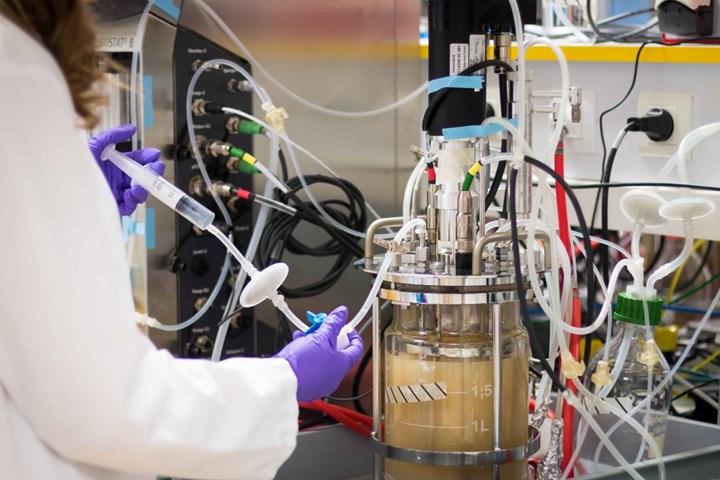Bio-based Elastomer for Biopharmacuetical Tubing
Avient introduced its Versaflex elastomer formulated with bio-derived content.
Avient Corporation announced the availability of Versaflex HC BIO, thermoplastic elastomer (TPE) with bio-based content. Developed as an alternative for biopharmaceutical tubing, the initial Versaflex HC BIO BT218 grade is formulated with nearly 40% first-generation biomass content, resulting in a lower carbon footprint than traditional options.

Avient new product is aimed at tubing for pharmacuetical applications.
Photo Credit: Avient Corporation
The 71 Shore A formulation provides critical application performance such as weldability, kink resistance, and tensile strength comparable to leading medical tubing materials, including silicone and standard TPEs. The bio-derived grade offers greenhouse gas emissions at 2.35 kg CO2e / kg product, a nearly 25 percent lower cradle-to-gate product carbon footprint than Avient’s standard Versaflex HC BT218 grade. Avient’s product carbon footprint calculation method follows the ISO 14067:2018 standard and is certified by TUV Rheinland, an independent testing service company.
Certified for USP Class VI and ISO 10993, the new Versaflex HC BIO BT218 grade is manufactured in the United States with global commercial availability.
Related Content
-
PIR/PCR Recycled Content and Biobased TPEs for Broad Range of Applications
NPE2024: Kraiburg TPE launching PCR/PIR content polyolefin-based TPEs and its expanded line of Thermolast R biobased TPEs.
-
Tracing the History of Polymeric Materials -- Part 29: Polyurethane
This material family has unparalleled versatility, not only in terms of the forms the material can take, but in the different ways in which it can be processed.
-
Tracing the History of Polymeric Materials, Part 25: Silicones
The long road to the development of silicone resulted in a chemistry that is remarkably versatile.











